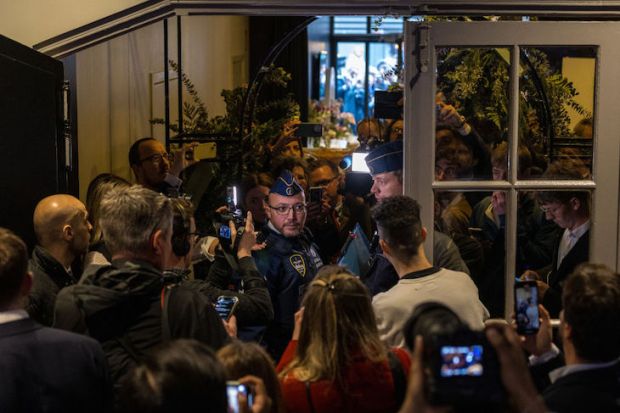The emergence of a free and open internet was one of the greatest achievements of liberal democracies. The creation of a decentralised web allowed ordinary citizens in countries all over the world to share and receive information. Now, fears about crime and moral panics about disinformation mean that many liberal democracies are making the web a smaller place for everyone.
On Wednesday, the Government published its Online Safety Bill, a piece of legislation designed to make the UK ‘the safest place in the world to go online, and the best place to start and grow a digital business.’ Omitted from this description is that the proposed Bill would also make the UK a world leader amongst democracies when it comes to censorship and state control.
The legislation forces large social media companies to act on any content which risks ‘having, or indirectly having, a significant adverse physical or psychological impact on an adult.’ Such a vague duty will no doubt lead to sites doubling down on controversial or offensive views, which have always been protected as an inherent part of freedom of speech. With a threat of penalties for a failure to remove posts of this nature, online platforms will be forced to snoop on users more and will be quicker to take content down. An entrenchment of surveillance capitalism beckons, only this Bill would make it state backed.
One particularly pernicious element of the wider proposals is the government’s intention to clamp down on what they refer to as ‘misinformation’ and ‘disinformation’ online – terms undefined in the Bill. How such concepts could be accurately defined and restricted without censoring the lawful expression of internet users is not clear. Over the course of the last year, posts by academics on Facebook on Twitter which have questioned the efficacy of masks have fallen foul of the platforms’ broad rules on misinformation. The Online Safety Bill will make this worse and the clear risks to free discussion are obvious.
Amongst other things, the pandemic was a security crisis and many governments around the world, including here in the UK, have begun to develop a growing paranoia about the spread of information they cannot control. Where journalists and politicians once acted as the gatekeepers of expression, the internet has democratised speech and has meant that everyone now has access to a platform. Unfortunately, those in power often do not like this direction of travel.
Curiously, the Online Safety Bill creates carveouts for ‘journalistic content’ and ‘democratic content’. The definition of these concepts remains fuzzy, but what is clear is that these exemptions from the scope of the Bill are designed to give special protection to journalists and politicians; restoring the old gatekeepers of speech whilst bestowing upon the rest of us an online regime of restrictions and censorship. There is no doubt that the media plays a fundamental role in any democracy, yet the question remains: if this legislation does not inhibit free expression as the government claims, why are carveouts for journalists and politicians necessary at all?
This really matters, not just for internet users here in the UK but also for people all around the world. If the United Kingdom creates an online regime which is intolerant of free expression, what is there to stop other, less liberal governments abroad citing British legislation to justify their own censorship?
The willingness of national governments to act as an arbiter of online speech is growing. Only two weeks ago the Indian government, led by Narendra Modi, leant on Twitter to take down tweets which were critical of its pandemic response. And a few months ago, in a brazen act of censorship, they demanded the platform suspend hundreds of accounts which had posted content about the country’s farming protests. This collusion between governments and social media giants in the largest democracy in the world should be a warning to anyone who believes in the right to freedom of speech. It is time to push back.
The publication of the draft Online Safety Bill marks the start of its journey through Parliament, but this is just another chapter in a long running conversation about our deteriorating relationship with free speech.
The UK has often been a world leader in promoting human rights and the rule of law, yet this legislation could set a precedent for all of the wrong reasons; introducing state-backed censorship and monitoring on a scale never seen before in the Western world. Parliament must step in to safeguard our right to free expression by removing provisions that restrict lawful speech from the Bill entirely. If it fails to, Britain will only embolden those around the world who would prefer to silence dissenting voices than let them be heard. The future of the free, fair and open internet could depend on it.
Got something to add? Join the discussion and comment below.
Get 10 issues for just $10
Subscribe to The Spectator Australia today for the next 10 magazine issues, plus full online access, for just $10.


















Comments
Don't miss out
Join the conversation with other Spectator Australia readers. Subscribe to leave a comment.
SUBSCRIBEAlready a subscriber? Log in